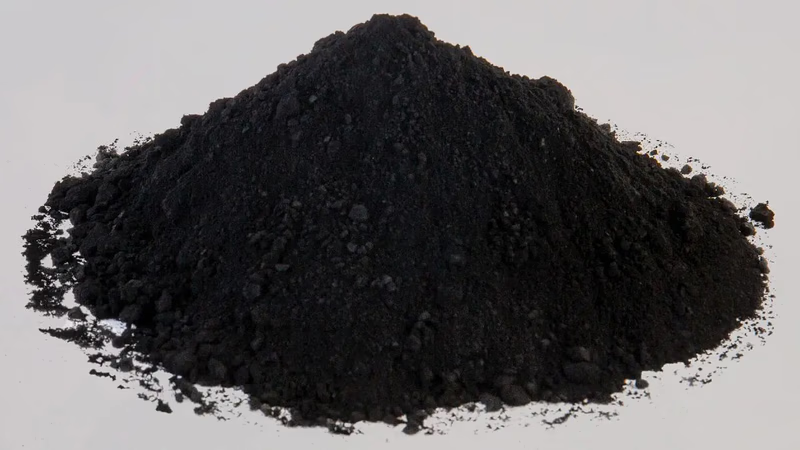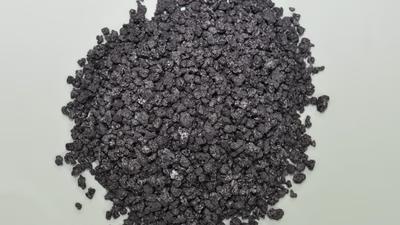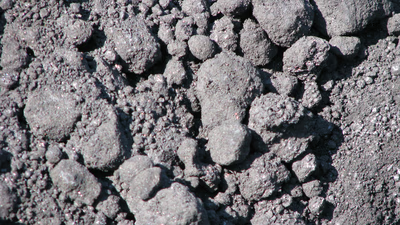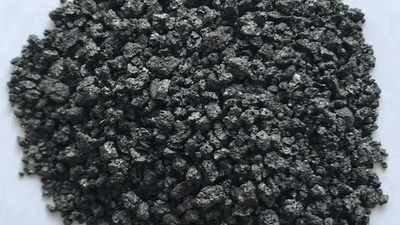
Petroleum coke: A vital commodity in energy generation.
Petroleum coke, often abbreviated as petcoke, is a carbonaceous solid derived from the refining process of crude oil. It is a byproduct of the petroleum industry and is produced when heavy crude oil is processed into lighter fractions such as gasoline and diesel fuel. Petroleum coke is primarily composed of carbon and contains small amounts of sulfur, nitrogen, and other impurities. It is a dark, solid material with a high carbon content, typically ranging from 85% to 95%. The carbon content makes petroleum coke a valuable fuel source, especially for industrial processes that require high heat and energy.
Petroleum coke (Petcoke) is the final carbon-rich solid material obtained from the oil refining process and is a group of fuels known as coke. Petroleum coke is specifically obtained from a final cracking process, which is considered a chemical engineering process, and the hydrocarbons of the oil chains are divided into shorter chains in a section called the coke unit. In other words, petroleum coke is the product of the carbonation of heavy hydrocarbon sections of oil at high boiling points. Petroleum coke is also produced in the process of producing synthetic crude oil from bitumen extracted from Canadian oil sands and Venezuela's Orinoco oil field.
Coking is a process consisting of thermal decomposition, polymerization and condensation in which heavy petroleum residues are converted into a variety of gases, liquids and solids with a high percentage of carbon, called petroleum coke. Obtained petcoke, which is not calcined, is also called green coke. Based on the initial feed, various cokes are obtained, which are mainly divided into three types: seed (Shot Coke), sponge (Sponge Coke) and needle (Needle Coke).
The physical structure and purity of petroleum coke determine its application. According to the study, increasing oil demand, high production of heavy oil in the country, problems of storage of heavy oil residues, pollution caused by them, the import of petroleum coke and most of the products needed in the country to invest in, It seems necessary to set up a delayed coking unit in the country. Petroleum coke has a higher calorific value than metallurgical coke. Its ash content is less.
Petroleum coke is a globally traded commodity and is often transported and traded in bulk quantities. It has various industrial applications, including energy generation, metal smelting, cement manufacturing, and as a source of carbon in the production of electrodes, graphite, and other carbon-based products. Due to the very extreme thermal conditions in which oil coke is produced, it has a very small amount of combustible volatile substance, as a result of which this coke is very hard to burn due to the low amount of volatile substance. Uncalculated petroleum coke is also called green coke and is mostly used as fuel. Eventually, raw coke becomes calcined coke, which has a high stabilized carbon content, low ash content, and very low sulfur content.
There are two main types of petroleum coke: calcined coke and fuel-grade coke. Calcined coke is further processed through a heating process to remove volatile matter and moisture, resulting in a more pure and higher-quality product. Calcined coke is mainly used in the production of anodes for the aluminum industry and as a source of carbon in the steel industry. Fuel-grade coke, on the other hand, is less pure and is primarily used as a fuel in power plants and cement kilns. It has a higher sulfur content and lower carbon content compared to calcined coke, which makes it less suitable for producing high-quality carbon products.
-

Petroleum coke (petcoke) is a carbon-rich solid derived from oil refining, widely used as fuel in various industries due to its high calorific value, which ranges from 7,500 to 8,500 kcal/kg. Its efficiency makes it suitable for processes requiring substantial heat, such as cement kilns and power plants. Petcoke is often more cost-effective than other fossil fuels like coal or natural gas, appealing to industries aiming to lower fuel expenses. Additionally, it serves in producing electrodes for aluminum and steel industries and can enhance the combustion efficiency of blended fuels. However, the use of petcoke presents challenges. Environmental regulations are tightening, potentially limiting its use and necessitating investments in emission control technologies. Public opposition arises from health and environmental concerns linked to petcoke combustion, which releases significant CO₂ and harmful pollutants like sulfur oxides and nitrogen oxides. These emissions can lead to air quality issues and contribute to climate change.
Furthermore, petcoke"s high sulfur content poses risks of acid rain formation and respiratory problems. Industries must also manage the ash produced during combustion, which requires additional infrastructure for proper disposal. Understanding the quality specifications of petcoke is crucial for effective utilization; poor choices can lead to inefficiencies and financial losses. "
-

Petroleum coke, with a carbon content of 85% to 95%, serves multiple industrial applications due to its high calorific value and efficiency as a fuel source. It is primarily utilized in steelmaking, aluminum smelting, and the production of carbon-based products. Calcined petroleum coke is particularly valuable for its electrical conductivity, making it essential for carbon and graphite electrodes in aluminum production. Additionally, petroleum coke is used in power generation and cement kilns, where its heat-generating properties are advantageous. The material can be categorized into raw (green) and calcined types; the latter is preferred for its lower sulfur and ash content. In the cement industry, petroleum coke"s sulfur content eliminates the need for additional sulfur in cement production. Furthermore, it acts as a carbon source in alloy industries and is involved in various high-temperature industrial processes. Its availability as a byproduct of petroleum refining makes it an economical choice for many sectors.
The ability to modify petroleum coke through calcination enhances its quality for specialized applications, while blending with other materials can optimize its properties. Overall, petroleum coke stands out as a cost-effective alternative to traditional fuels and carbon sources across diverse industries. "
-

Petroleum coke, or petcoke, is a carbon-rich solid produced during the oil refining process. It results from the thermal decomposition of heavy crude oil into lighter fractions like gasoline and diesel. Composed of 85% to 95% carbon, petcoke serves as a valuable fuel source for industrial applications requiring high heat. The production process involves coking, which converts heavy petroleum residues into gases, liquids, and solids with high carbon content. There are two main types of petroleum coke: calcined and fuel-grade. Calcined coke undergoes further processing to enhance purity and is primarily used in aluminum production and steelmaking. Fuel-grade coke is less pure and mainly utilized as fuel in power plants and cement kilns. The demand for petroleum coke is driven by increasing oil consumption and the need for efficient energy sources in various industries.
Its global trade involves bulk transportation, making it a significant commodity in the market. The physical properties of petcoke determine its applications across sectors such as energy generation, metal smelting, and cement manufacturing.
-

The largest producers of petroleum coke (petcoke) are primarily countries with significant oil refining capabilities, including the United States, China, India, Saudi Arabia, Brazil, Russia, Canada, and the European Union. Major oil companies such as ExxonMobil, Sinopec, and Saudi Aramco are key players in this sector. The U. S. leads in refining capacity and petcoke production due to its numerous refineries operated by companies like Chevron and BP. China’s industrial sector drives its high petcoke output through state-owned enterprises like Sinopec. India is rapidly expanding its refining capacity with Reliance Industries and Indian Oil Corporation as major contributors. Saudi Arabia"s vast oil reserves support substantial petcoke production primarily through Saudi Aramco.
While the Middle East has notable refining operations contributing to global petcoke supply, it does not lead in overall production compared to the U. S. , China, and India. The EU also plays a role in petcoke production with companies like Royal Dutch Shell involved in refining processes that yield petcoke as a byproduct. Other countries such as Brazil and Russia have well-established oil industries that contribute significantly to global petcoke output. "
-

Petroleum coke production in the Middle East is significantly influenced by the region"s oil refining capabilities, with major producers including Saudi Arabia, Iran, Iraq, Kuwait, and the UAE. The production rate varies based on oil output, refinery utilization, and market demand. Saudi Arabia leads with an estimated annual production of 5 to 10 million metric tons of petcoke, while Iran produces between 1 to 3 million metric tons. Kuwait also contributes significantly with similar production levels. The total petroleum coke output in the Middle East is estimated to range from 8 to 15 million metric tons annually. The aluminum industry is the largest consumer of petcoke globally, accounting for 76% of its usage. As demand for aluminum rises in the region, so does the need for petcoke. Modernization and expansion of refineries are expected to further boost production rates.
However, environmental regulations may pose challenges to production practices. "





